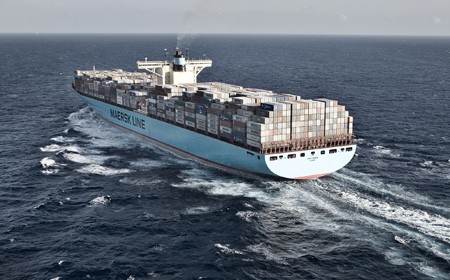The summer holidays gave me time to reflect on some of the key issues the resources and waste sector faces. Over the next few weeks I will putting pen to paper to help highlight these challenges and will be holding a series of roundtable discussions to debate some of the critical issues.

Over the last 12 months there have been numerous opportunities to respond to the various consultations and proposals arising from the Resources and Waste Strategy, and for the next 12 months, who can say for certainty what the post October 31 landscape will look like? One opportunity not to miss is the forthcoming Environmental Bill. Some are saying the Bill could form the centrepiece of the Boris Johnson government. I hope it will provide a focus and energy to help move the environmental agenda along and provide an opportunity to tackle the challenges we face today.
Export
Of those challenges, in recent times perhaps the hottest topic has been the export of materials for recycling and recovery. The ability to export materials destined for recycling and recovery has been very helpful in supporting the increase in recycling rates over the last 10 years – it provided the necessary outlet for materials that were collected and sorted at the ever-increasing numbers of MRFs.
Exports for many used to fall into the “out-of-sight out-of-mind category”. Containers leaving the UK full of materials ready to be recycled, and then the same ship coming back with a load full of finished goods, it even looked kind of circular in operation.
However, changes in the market, raising of export standards in China (and other lands) have brought the export issue to the fore. The BBC’s War on Plastics documentary series brought the issue, (if it hadn’t got there already), to the mainstream showing the appalling images of mixed plastics abandoned and left to rot.
The recent media attention has contributed to a growing feeling that the public has been “duped” into recycling their waste, when all along it was simply dumped somewhere else. It is hard to refute that some plastics arising from the UK have been illegally dumped abroad, and that is both illegal and I believe morally unacceptable.

In all the coverage of the export issues in the last year interestingly, fibres, textiles and other grades of material do not seem to have been given as much media attention – but the same generic issues apply. The challenge we face is to try and re-build consumer and political confidence in recycling and the recycling industry, and to clearly separate the legitimate activities of the industry (in the UK at least) from the criminal operations that have resulted in material being dumped abroad.
Proximity
One of the key principles of the Waste Framework Directive is that of proximity: “wastes should be disposed of as close to the source as possible”.
“The challenge we face is to try and re-build consumer and political confidence in recycling and the recycling industry, and to clearly separate the legitimate activities of the industry (in the UK at least) from the criminal operations that have resulted in material being dumped abroad.”
Is the Environment Bill the opportunity to push this principle even further, such that materials collected in the UK are fully reprocessed in the UK? It would certainly challenge the current model of sending vast volumes of materials across the globe to be recycled or recovered “out-of-sight”.
As a minimum I believe we should only ever be exporting finished products for final reprocessing and I hope the forthcoming changes to the Basel Convention help here. The convenience of being able to export materials to other lands masked fundamental issues with our sector:
- Investment – Critical to a resource efficient economy is the right infrastructure, in the right place – the UK is lacking critical recycling and recovery infrastructure and the gap will widen unless action is taken.
- Quality, quality quality – the adage “rubbish in rubbish out” holds true in so many ways for the sector, unsorted, contaminated, or low-grade materials do not maximise the potential value, and are more likely to command a negative value and to be dumped or mishandled.
- Crime and “right touch” regulation – serious criminality “fly by nights” and amateurs have no place in this or any industry and need removing and keeping out of the sector for good.
Over the next few weeks I am looking forward to engaging with a wide range of stakeholders to hear opinions and gather views to help shape the debate and the future of the sector. The first roundtable discussion will focus on exports and the quality of collected materials, and will be held at ESA’s London office in mid-September details to be confirmed, if you would like to come along, ESA member or not, get in touch.











As always good words from Jakob, regrettably we have also adopted the out of sight out of mind menatiality to our oceans (and look where that has got us) and in fairness to developing countries.
Quality is essential and we need to start beign honest with ourselves and stakeholders on full commingled collections. What companies say privately and pubcically differs as they need to protect csutomers whioch is fully understanable. However, mixing paper and glass should never happen when focussing on quality in my opinion. Still tonr on glass or paper out, but marginally in favour of glass.